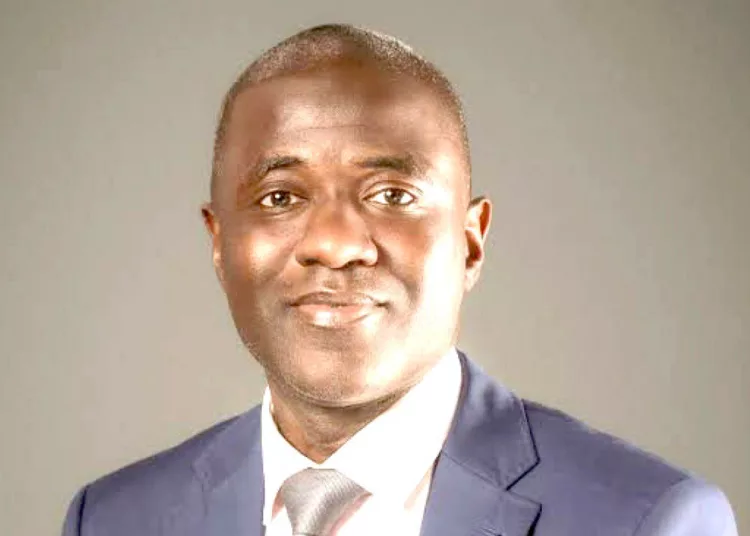For the past decades, the Nigerian Communications Commission (NCC), has introduced various reforms and initiatives to drive growth in the Nigerian telecommunications industry.
Among these was the introduction of the Strategic Management Plan (SMP) that is expected to drive the attainment of NCC’s mandate and develop the communications sector in line with the expectations of the Nigerian Communications Act (NCA) 2003.
The SMP journey started in the year 2002 as the main driver of NCC’s service delivery process. The Commission’s first SMP was for five years, from 2003-2007, followed by the SMP (2014 –2018) which expired at the end of 2018.
The latest SMP which covers a five-year period, 2020-2024, aimed at bringing the benefits of the digitized economy to the citizens of Nigeria.
According to the SMP document, “The SMP 2020 – 2024 includes NCC’s reviewed Mission and Vision in line with the Commission’s mandate as stipulated in the NCA, 2003. The SMP reinforces its Core Values as the guiding principles that will mould its culture and underpin the effective execution of the Plan.”
The Plan reviews the internal situation analysis of NCC, and its external business environment (both macro- and microenvironments) and identifies key issues that must be addressed. A stakeholder analysis was carried out to review key stakeholder needs and to identify the stakeholder value proposition.
Christened ASPIRE 2024, the commission averred that the SMP 2020 – 2024, comprises five pillars, viz: Regulatory Excellence- to develop adaptive and sustainable regulation to ensure efficient regulatory service to all stakeholders; Universal Broadband Access- to achieving pervasive and inclusive broadband access by providing incentives for broadband deployment in Nigeria.
The rest of the pillars are; Promote Development of Digital Economy- provide the necessary regulations and initiatives for the achievement of the Digital Economy policy thrust of the Government; Market Development- ensure a dynamic market that drives innovation necessary for economic growth; and Strategic Partnering: aims at mutually sustainable collaboration with relevant stakeholders.
Success stories
One of the success stories recorded in the execution of the SMP 2020-2024, was the area of bridging the access gaps in the sector. Access gaps refer to the cluster of communities or grouped areas in different parts of the country that are bereft of access to telecom services and till date.
Within the five years period of execution, the number of identified areas of clusters across Nigeria without access to the telecommunications services reduced by 53.1 per cent as at the end of 2022, according to NCC data.
The NCC has reduced clusters of access gap by more than half. From 207 clusters of access gaps in 2013, the industry witnessed a reduction to 97 as of end 2022, by bridging 110 clusters of access gaps, representing a 53.1 per cent reduction.
The former executive vice chairman of NCC, Prof. Umar Garba Danbatta, while explaining further, said, by implication, the number of Nigerians who fell within the access gap which were estimated at 37 million in 2013, reduced to 27 million, following increased access to telecoms services by those hitherto not digitally included.
Danbatta said: “We have worked tirelessly to ensure we bring telecom services to people living in rural, unserved, and underserved areas of this country, totaling 37 million people. By 2019, we had succeeded in reducing the clusters of access gaps to 114 through the deployment of the necessary infrastructure needed to bring services to people living in rural, unserved and underserved areas of the country.”
He attributed the success to the deployment of infrastructure, adding that, from 2013 to 2018, the telecom sector witnessed the deployment of additional 124 base transceiver stations, while from 2019 to 2022, a total of 364 base transceiver stations were deployed.
“The deployment of infrastructure is in terms of base transceiver stations, which resulted in the reduction of Nigerians in those clusters from 37 million to 31 million in 2019. By 2022, we have reduced the clusters of access gaps to 97 from 207 in 2013. The number of Nigerians again have come down from 37 million in 2013 to 27 million as we speak. We achieved this by deploying, from 2009 to 2011, a total of 79 new base transceiver stations. So far, the total number of base transceiver stations we have deployed to date between the time the access gaps were identified till the end of 2022 are 567,” he added.
While describing the reduction in access gap so far as a landmark, Danbatta, however, said the commission would not rest on its oars as it thrives to ensure that the remaining 27 million Nigerians, who currently lack access to telecoms services, are provided with services.
Similarly, there are approximately 95,000 kilometres of fibre optic cables across the country. So far, the private sector has laid around 35,000 km. Part of the minister of communications, innovation, and digital economy, Bosun Tijani’s mandate is to complete 70 per cent of the 95,000km of fibre as quickly as possible.
The licensing of seven Infrastructure Companies (InfraCos) to deploy fibre infrastructure across the six geo-political zones has also helped to galvanize increased connectivity. This will also bring about a reduction in the cost of data with a broadband penetration target of 70 per cent to cover 90 per cent of the population by 2025 as contained in the new Nigerian National Broadband Plan (2020-2025).
During the period under review, the Commission has put in place various consumer-centric initiatives to strengthen consumer protection and empowerment in the last seven years. These include the declaration of 2017 as the Year of the Consumer, the introduction of the Do-Not-Disturb (DND) 2442 Short Code, the introduction of the NCC toll-free Number 622; stringent provisions of Subscriber Identification Module (SIM) Registration, issuance of direction on forceful subscription and data roll-over, among others.
Focus of SMP 2025-2029
As the SMP 2020-2024 near its end, the NCC is gearing towards the formulation of SMP 2025-2029. According to a document released by the Commission, the SMP 2025-2029 will focus more on regulation of emerging technologies.
According to the document, “Two decades of disruptive innovation has led to the commoditization of telecoms industry products with over-the-top (OTT) players presenting the stiffest competition. In most cases, this arises primarily from the diversification of the service range afforded by OTT platforms.
“These disruptions have blurred the distinction between telecoms products and those of allied verticals (i.e. industries that are driven/will be driven by technology, e.g. financial services (mobile money), agriculture, health, transportation, etc.). The main elements of the disruption range from Web Access (Mobile Broadband vs Wi-Fi), to Mobile-to-Mobile (M2M) services vs Internet of Things (IoT), cloud computing, OTT services to big data management and generational change in network delivery capacity from 1G to 5G in the last forty years with 6G in the works in the near future.
“Key drivers of emerging technologies identified during the assessment stage included, Cybersecurity, Big Data & Analytics, Artificial Intelligence (AI), Cloud Computing, IoT & M2M, Network Functions Visualization (NFV), Nextgen Mobile Networks (5G).”
With these technologies, the SMP 2025-2029 will address issues on how NCC can regulate Emerging Technologies and how NCC can cope with challenges of regulating Emerging Technologies in the face of, cybersecurity and privacy issues, fast pace of changing technologies, and disruption of business models, the document averred.
There were some suggested principles of regulating Emerging Technologies that should inform the new SMP, which include an Adaptive Regulation Model, a shift from ‘regulate and forget’ to a responsive approach; Regulatory Sandboxes, prototype and test new approaches by creating sandboxes and accelerators; Collaborative Regulation; Streamline Regulation, nationally by engaging a broader set of players across the ecosystem and risk Weighted Regulation, a shift from one size fits all approach to segmented data driven approach, it added.




